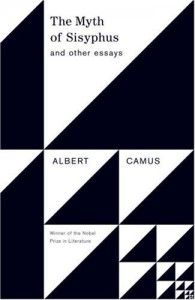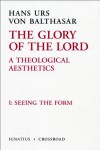The Myth of Sisyphus: And Other Essays

In one way, at least, "The Myth of Sisyphys" is not an honest inquiry into the question of meaning. Camus dismisses, a priori, any possible supernatural source of meaning, which leaves him with only absurdity. But then he despairs because of the meaningless and absurdity of life. Well, what did he expect? Inasmuch as an absurdist essay can be said to be internally consistent, "Sisyphus" succeeds. Camus himself, however, concedes that absurdity ultimately results in chaos and that his very argument must collapse in on itself. He stops short of admitting that there is no reason to accept his conclusions, but that is the logical end of his thought (yes, he uses logic in spite of the fact that he undermines reason, and he acknowledges that absurdity).
Before I go further, I must make it clear that his reasons for dismissing supernatural meaning are well founded. His critique of Christianity in particular as he understood it are dead on. In his research into Christianity, Camus discovered a requirement that those who enter the church must sacrifice the intellect. Further, he discovered in Kierkegaard not only this sacrifice, but a requirement that faith requires an irrational leap into the void. Camus was fiercely intelligent, and rejected any claim that was internally contradictory. As such, Camus rightly rejects both requirements.
Oddly enough, in this respect, Camus is in complete agreement with the Bible, for both requirements are antithetical to Holy Scriptures of Christianity, the Bible. Over and over again in the Christian Bible, God pleads with people to reason with Him. The faith of Abraham, the crux of Kierkegaard's leap, was not an irrational leap, but was based on propositional truth. Sadly, Camus' critique never went as far as comparing the claims of Ignatius and Kierkegaard to Scripture, leaving him with nothing but absurdity.
Another problem in Camus' thought as expressed in "Sisyphus" is that he claims to have made no assumptions and worked with only that which is concrete. For the most part, I must agree with him. However, he makes one critical assumption that is not based on anything concrete, and it undermines most of his argument. He assumes intelligence and the mind, neither of which are concrete, both of which are abstract concepts. There are those today who question whether such things as mind or intellect exist. If mind and intellect are indeed assumed, Camus' argument for the nobility of the absurd collapses, as it is built on lucid thought and intellect. Nothing, not even absurdity, is left to Camus now.
More later...







